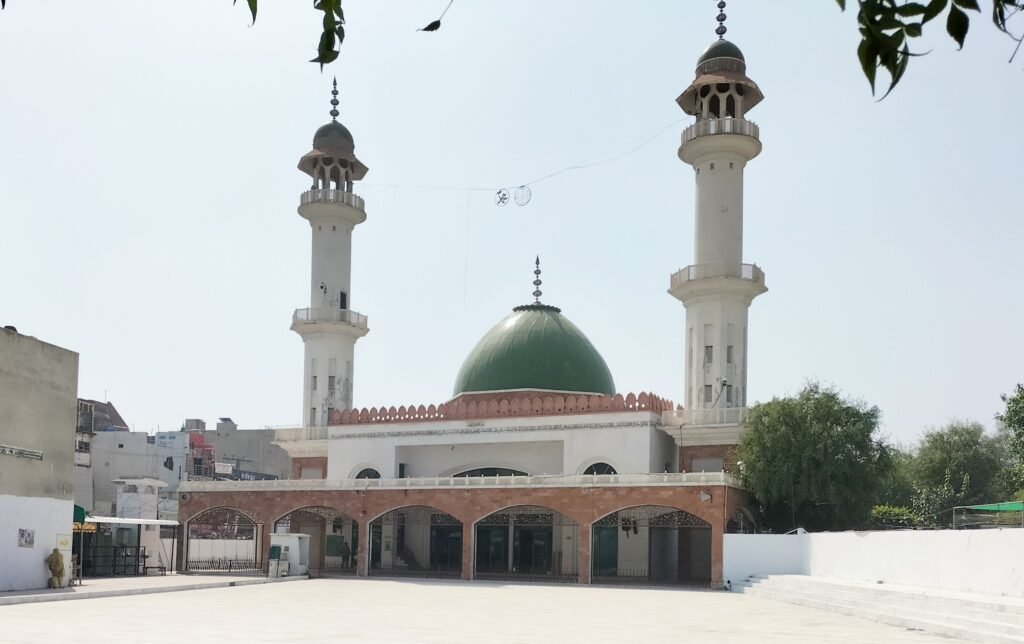Kasur is a city and one of the districts of Punjab Province of Pakistan. Kasur has hot semi arid climate. Kasur weather and climate is a mixture of hot and cold seasons and in some months temperature reaches extreme levels. Summer season begins in April and continues till September, June being the hottest of months. Winter usually starts from November and remains till February. Weather remains harsh and extreme during December and January and in these months temperature falls greatly.
Kasur District also experiences a distinct rainy season during the South Asian monsoon period, which typically lasts for two months—from early July to the end of August. This period brings substantial rainfall, often in the form of heavy downpours and thunderstorms, significantly influencing both the agriculture and the hydrology of the region. While the monsoon is vital for replenishing water sources and supporting crop irrigation, it also presents serious risks—particularly in areas near the Sutlej River.
Kasur Weather Update:
Here is the Kasur weather update for today and next 4 days. Wind speed, pressure and cloud condition is also given in the below section:
Kasur Weather During Monsoon
Historically, excessive monsoon rains have caused the Sutlej River to swell beyond its normal limits. In several past instances, the river overflowed, resulting in flooding that affected large areas of Kasur, especially the low-lying settlements along the riverbanks. Such floods have damaged crops, displaced communities, and caused disruptions in transportation and daily life. Each year during the monsoon season, local authorities and residents closely monitor the rising water levels of the Sutlej, remaining on high alert to take preventive measures and evacuate if necessary.
Apart from the monsoon season, Kasur also receives light to moderate rainfall during the winter and early spring months—from January to March. However, the volume of precipitation during this period is significantly lower compared to the monsoon rains. These off-season rains play a secondary but supportive role in agriculture, particularly for winter crops such as wheat and barley, aiding soil moisture levels and contributing to healthier crop growth.
Given the vulnerability of certain areas to flooding, the National Disaster Management Authority (NDMA), along with provincial and district-level disaster response units, actively supervises and coordinates emergency preparedness during the rainy season. Measures such as early warning systems, public awareness campaigns, and relief operations are put in place to mitigate the impact of heavy rainfall and potential flooding. These efforts aim to protect human lives, safeguard agricultural output, and ensure minimal disruption to the livelihoods of those living in flood-prone regions of Kasur District.
Climate & Soil:
The weather, climate, and soil conditions of Kasur are highly favorable for agriculture, making it one of the productive districts in Punjab. The district is endowed with rich, fertile alluvial soil, which supports the cultivation of a variety of crops. Among the most prominent are wheat, rice, and corn, with wheat being the dominant crop cultivated extensively across the region. Rice ranks as the second most commonly grown crop, particularly in areas with access to sufficient irrigation.
The hot and dry climate during the months of May and June plays a crucial role in the ripening and harvesting phases of wheat, contributing to high yields. In addition to food crops, cash crops such as cotton and sugarcane are also cultivated, further enhancing the agricultural diversity of the district. The combination of suitable weather patterns, fertile soil, and irrigation from nearby rivers and canals makes Kasur an important agricultural hub in the province.
It has rich culture and history. It is an ancient city and many rulers in past had ruled over it. The city has many fortified hamlets also known as Kots and their sight is delightful which brings us back to Mughal Empire during which those were constructed. Many of these historical hamlets are still present in it. Besides this, Famous Sufi poet Bulleh Shah and famous singer Noor Jehan belong to District Kasur. Kasur is situated in subtropical thorn woodland biome according to the worldwide fund for nature. India Pakistan border lies on the east of Kasur. Lahore lies on its north.

Kasur Weather 7 Days:
Below is the Kasur weather update of 7 days. It also includes maximum and minimum temperature, wind speed and precipitation:
See KhudianWeather